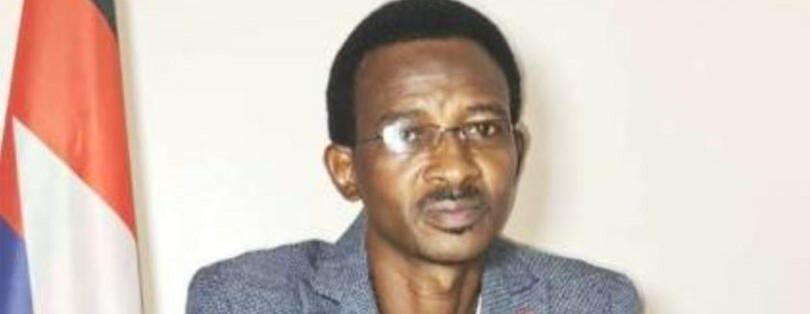In an exclusive interview, the spokesperson for the Sudan Liberation Army/Movement – Abdul Wahid Nur faction discusses their initiatives, approach to Sudanese issues, and neutrality in the recent conflict.
Addressing anti-dialogue accusations, the armed movement’s spokesperson Mohammed Abdel-Rahman El-Nair confirms an invitation from the Coordination of Civil Democratic Forces (Tagaddum), highlighting the movement’s commitment to discussions for Sudan’s stability.
Below are edited excerpts:
Q: The movement has put forth an initiative to address the war issue in Sudan. Can you explain its concept and when it might materialize?
A: Since 2019, our movement has advocated for an intra-Sudanese dialogue. In 2021, a think-tank meeting was held in the liberated controlled areas, attended by all sectors of the movement, where the plan was approved. We then took this initiative to Juba to present it in the peace negotiation process. However, the October 25 coup disrupted the initiative, as a democratic atmosphere is crucial for such endeavours, and it cannot thrive under a military regime. Our focus shifted to ending the coup and reinstating the democratic system.
The Supreme Council revisited the initiative, but the outbreak of war on April 15 posed a hindrance. Initiatives require a conducive environment, and the all-encompassing nature of the war, especially since it became widespread, made it unsuitable for our proposed initiative.
Q: What is the movement’s approach to addressing the current issues in Sudan?
A: The movement firmly believes that resolving Sudanese challenges requires an inclusive Sudanese-Sudanese dialogue, with the only exclusions being the National Congress Party and its affiliates, given their role in the country’s devastation during their 30-year rule.
We advocate for a dialogue that incorporates all segments of the Sudanese population, providing a platform for people to express their views on matters such as war and marginalization and collaboratively work towards solutions.
Past attempts to address these issues primarily involved negotiations between a small, powerful elite and their adversaries or between Khartoum and armed movements. Unfortunately, these negotiations often concluded with power and wealth sharing agreements, resulting in 48 such agreements that failed to bring about peace. Instead, they further divided the country, fostering instability and conflicts from 1955 until April 15, 2023.
Q: The movement previously engaged in conflicts with the Sudanese army and Rapid Support Forces. Why did it decide to adopt a neutral stance in the current war that began on April 15?
A: While the movement was involved in hostilities with the Sudanese army and Rapid Support Forces before the April 15 war, it has since chosen a neutral position and will not align with any party. This decision stems from the realization that the current conflict is not the movement’s war but rather a conflict between two other parties.
From the onset of the war, I called for its cessation, understanding the grave consequences it carries. It is illogical for us to participate in a conflict that does not directly concern us. Our focus is on efforts to bring about an end to the ongoing hostilities.
Q: Your movement has faced accusations of consistently rejecting dialogue opportunities, including recently. How do you respond to these claims?
A: We are open to genuine dialogue but firmly reject discussions solely focused on power and wealth distribution among the elite. Our stance supports an inclusive dialogue involving all segments of the Sudanese population. No single force represents the people’s interests on their behalf.
We advocate for a dialogue where the Sudanese people themselves identify the issues and collaborate on solutions. Subsequently, we envision a transition towards establishing a purely civilian transitional government led by independent technocrats. This government would guide the country towards prosperity based on a mutually agreed-upon program, including the creation of a unified national army aligned with a new military doctrine.
Q: Did you receive a letter from the Coordination of Civil Democratic Forces (Tagaddum) requesting a meeting with Abdul Wahid? What was your response to the meeting request?
A: Yes, the Sudan Liberation Movement, led by Abdel-Wahid Nur, received an invitation letter for a meeting with the Coordination of Civil Democratic Forces, led by Abdullah Hamdok, the former Prime Minister. The purpose of the meeting was to facilitate discussions between the two parties.
The movement has forwarded the invitation to the Supreme Leadership Council for review and a decision on its status.
Our movement is now more open than ever and is committed to making every effort to halt the ongoing war in Sudan. Our goal is to transition Sudan from a state of conflict to one of stability and development.
It’s worth noting that, recently, the Coordination of Civil Democratic Forces held a meeting in Addis Ababa with Lieutenant-General Mohammed Hamdan Dagalo, the Commander of the Rapid Support Forces. The same invitation was extended to the Army Commander, Lieutenant-General Abdel Fattah Al-Burhan, as well as the leaders of the Sudan Liberation Movement, Abdel-Wahid Nur, and the SPLM-N, Abdelaziz Al-Hilu.




